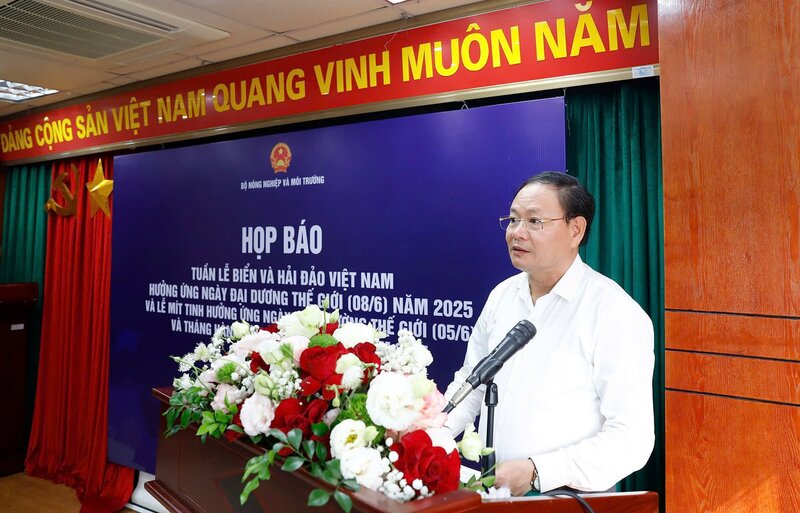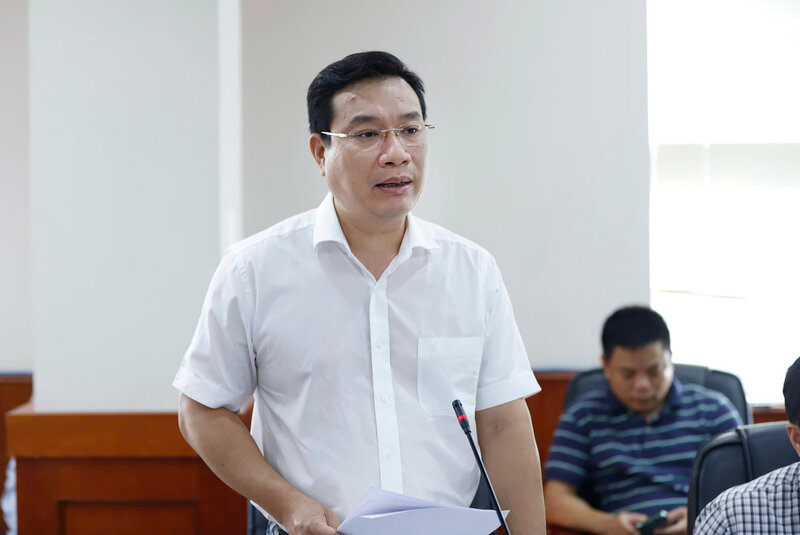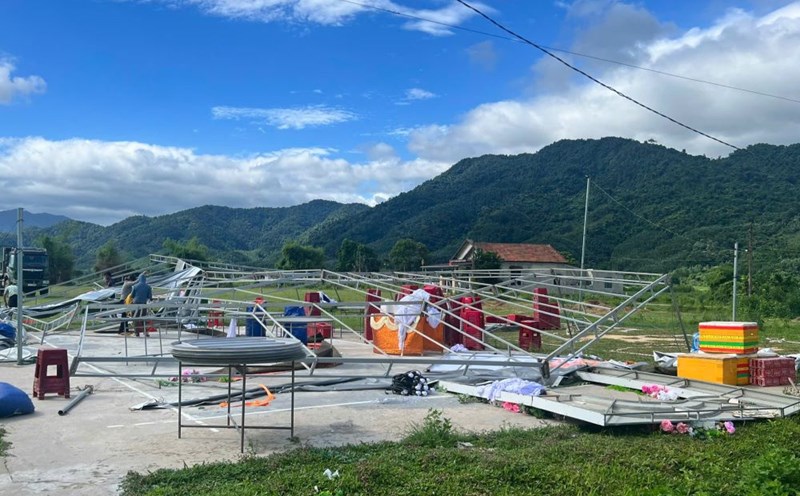Building a green Vietnam - a sustainable ocean
On the afternoon of May 28, the Ministry of Agriculture and Environment held a press conference to launch the series of events of Vietnam Sea and Islands Week 2025, in response to World Ocean Day (8.6), World Environment Day (6.5) and Environmental Action Month. This is an opening activity, marking the official launch of national-scale programs that will take place throughout June.
Speaking at the meeting, Deputy Minister of Agriculture and Environment Le Minh Ngan said that in 2025, the world will continue to face serious challenges related to environmental pollution, climate change, resource degradation and ecological imbalance. In particular, plastic and ocean waste pollution is becoming a global problem, requiring strong cooperation from all countries, sectors, localities and each citizen.
Responding to World Ocean Day (June 8) with the theme "Muring October: Preserving humanity's resources - Wonder: Sustaining What Sustains Us", World Environment Day (June 5) with the theme: "Anti- polluted plastic - Beat Plastic Pollution", the Ministry of Agriculture and Environment chaired and coordinated with ministries, branches and localities to organize a series of key activities to spread the spirit of action for green environment, clean sea and sustainable development.

"Through a series of practical activities and a wide-reaching influence, we strongly call on all Vietnamese people - from urban to rural areas, from mountainous to island areas, from children to the elderly - to take small actions every day, to build a green Vietnam - a sustainable ocean together" - Deputy Minister Le Minh Ngan emphasized.
Collecting garbage by volume, not "spoiling for money"
Responding to a press question about the regulation on weighing garbage for money in Ho Chi Minh City preparing to take effect from June 1, Deputy Director of the Department of Environment (Ministry of Agriculture and Environment) - Mr. Ho Kien Trung said that the activity of "exchanging garbage for money" is not a new concept but has already existed in the form of purchasing scrap metal and scrap iron.
Previously, the collection of household waste was often household-based, so whoever wanted to discharge as much as they wanted was discharged. However, currently, according to the provisions of the Law on Environmental Protection 2020, the calculation of waste collection, transportation and treatment fees must be based on the volume or volume of waste generated.
According to Mr. Trung, according to the law, the roadmap to 2025 is mandatory, meaning that the implementation time is already too late, not too early.
Currently, some provinces and cities have begun to pilot the calculation of fees according to trash bags - that is, according to the volume of trash. For example, Quang Nam and some other provinces have implemented this model, and Ho Chi Minh City is also piloting the calculation of fees based on volume, according to bags, not according to the garbage scale to calculate money as understood.
The bags will be designed with a capacity of 3kg, 5kg, 7kg, 10kg, and people will have to buy this bag to put in their household waste. This bag was purchased with funds for collection, transportation, and treatment.

"There is a folk saying that "the trash is paid for", but in reality, it is not about taking trash to weigh to pay. And implemented in many forms, balancing the volume of bags or packaging with the general principle of "the person causing the pollution must pay", people must pay for as much as they release the garbage" - Mr. Ho Kien Trung analyzed.
Regarding the new point of the Vietnam Sea and Islands Week 2025, the Director of Vietnam Department of Sea and Islands Nguyen Duc Toan emphasized that this year's highlight is the topic "Green technology for sustainable ocean". The 2025 Sea Week also takes place in the context of major changes in institutions and administrative boundaries. Specifically, after the merger of administrative units, the percentage of the number of provinces and cities in Vietnam has increased from 28/63 to 21/34, clearly reflecting the orientation of reorganizing the national development space according to the sea axis. "This change proves that the sea has really become a new traction for growth and economic development," Mr. Toan said.











